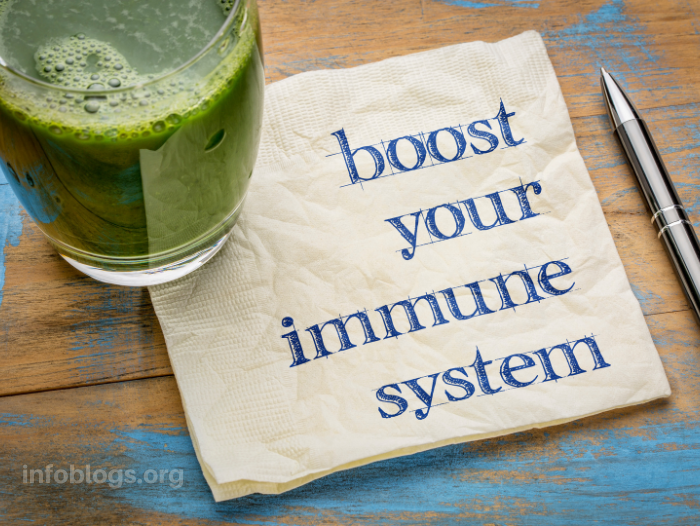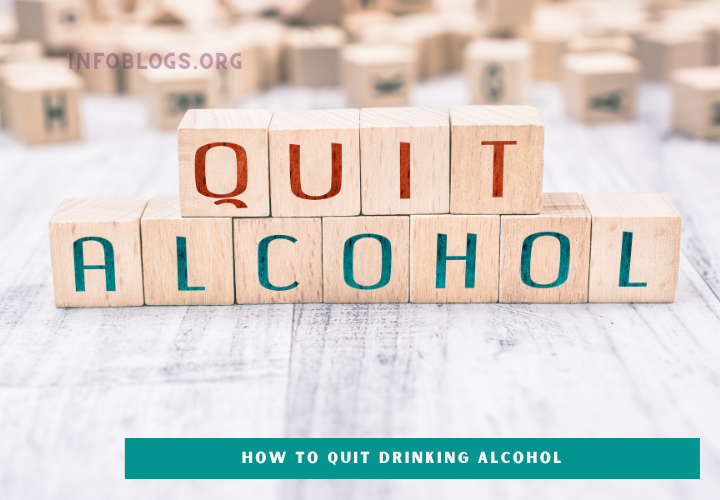
Jun 1, 2023 | Health and Nutrition
Enhancing your sleep quality is crucial for your overall health and efficiency. Unfortunately, numerous individuals encounter inadequate sleep, leading to a sluggish and unenergetic morning. If you want to boost your sleep and feel rejuvenated upon waking up, this article is perfect for you. We will examine successful techniques to improve your sleep quality, guaranteeing that you start each day with a positive mindset.
Establish a Consistent Sleep Schedule:
Establishing a consistent sleep routine aids in regulating the internal clock of your body. Make it a goal to sleep and wake up at the same time every day, including weekends. This habit conditions your body to adhere to a natural sleep-wake pattern, enhancing the overall quality of your sleep.
Create a Relaxing Bedtime Routine:
Partake in calming activities prior to bedtime as a way to indicate to your body that it's time to unwind. Refrain from engaging in stimulating activities like using electronic devices or watching intense TV shows. Rather, choose peaceful activities such as reading a book, taking a warm bath, or performing gentle stretches.
Make Your Sleep Environment Conducive to Rest:
Make sure your sleeping area is conducive to sleep by keeping it cool, dark, and quiet. To minimize disturbances, consider using blackout curtains, earplugs, or white noise machines. Additionally, prioritize your comfort by investing in a comfortable mattress, pillows, and breathable bedding.
Limit Exposure to Blue Light:
To avoid disrupting your sleep-wake cycle, it's best to refrain from using electronic devices like smartphones and laptops for at least an hour before bedtime. The blue light these devices emit suppresses the production of melatonin, the hormone that helps regulate sleep. If you must use your devices before bed, consider using blue light-blocking filters or enabling nighttime mode to minimize the impact on your sleep.
Avoid Stimulants and Heavy Meals:
Your ability to fall asleep and the quality of your sleep can be disrupted by caffeine, nicotine, and consuming heavy meals close to bedtime. To prevent this, restrict your intake of caffeinated drinks and avoid eating heavy, spicy, or fatty foods a few hours before going to bed. If necessary, choose a light snack instead.
Create a Comfortable Sleep Environment:
Make sure that your bedroom is tidy, organized, and suitable for relaxation. Choose cozy bedding, regulate the temperature according to your liking, and contemplate utilizing essential oils such as lavender to encourage a peaceful ambiance.
Engage in Regular Exercise:
Better sleep quality can be achieved through regular physical activity. It is recommended to participate in moderate-intensity exercises like brisk walking or jogging for at least 30 minutes on most days of the week. It is advisable to avoid exercising too close to bedtime as it may leave you feeling energized and make it difficult to fall asleep.
Manage Stress and Relax Before Bed:
Your sleep quality can be greatly affected by high levels of stress. To prepare yourself for a restful sleep, try practicing stress management techniques such as deep breathing exercises, meditation, or journaling before going to bed. Engaging in relaxation techniques helps to soothe your mind.
Avoid Napping Late in the Day:
To prevent difficulty falling asleep or restless nights, it is recommended to refrain from taking late afternoon naps. Daytime naps may disrupt your ability to sleep at night. However, if you feel the need to nap, it is advisable to limit it to a brief power nap earlier in the day.
Seek Professional Help if Needed:
If you have been unsuccessful in resolving your ongoing sleep issues despite trying different methods, it may be beneficial to consult with a healthcare expert. They can evaluate your situation, offer advice, and treat any underlying sleep disorders or ailments that could be impacting your sleep patterns.
Conclusion:
To achieve a healthy and productive lifestyle, it is crucial to prioritize the quality of your sleep. By incorporating these techniques into your daily routine and giving proper attention to your sleep, you can significantly improve its quality and wake up feeling revitalized and energized. It is important to establish a consistent sleep pattern and create an environment that promotes relaxation to experience the full advantages of a restful night's sleep.

Jun 1, 2023 | Health and Nutrition
Boosting your immune system is essential for maintaining good health and wellness. Although there are no quick fixes for becoming completely immune to illnesses, there are several natural approaches you can take to support your immune system. This article will examine ten effective methods to naturally boost your immune system, enabling you to remain healthier and more robust.
Eat a Balanced Diet:
Boost your immune system by consuming a well-balanced diet that is abundant in fruits, vegetables, whole grains, lean proteins, and healthy fats, which offer vital nutrients and antioxidants. Ensure that you incorporate immune-boosting foods such as citrus fruits, garlic, ginger, spinach, and yogurt into your everyday meals.
Stay Hydrated:
Boosting your immune system requires consuming a sufficient amount of water. Proper hydration aids in eliminating harmful substances, promoting the generation of immune cells, and preserving wet mucous membranes to protect against harmful microorganisms.
Prioritize Sleep:
It is essential to have enough sleep to maintain a healthy immune system. While sleeping, the body undergoes cell repair and regeneration, and the immune system becomes stronger. To boost immune function, strive to get 7-8 hours of quality sleep every night.
Manage Stress Levels:
To maintain a healthy immune system, it is important to manage chronic stress. This can be achieved through various techniques such as meditation, deep breathing exercises, yoga, or engaging in hobbies. By reducing stress levels, you can decrease your susceptibility to infections.
Regular Exercise:
Engaging in physical activity is beneficial for both weight management and immune system enhancement. It is recommended to participate in at least 150 minutes of moderate-intensity exercise or 75 minutes of vigorous exercise per week. It is important to choose activities that are enjoyable, like walking, jogging, swimming, or cycling.
Vitamin D:
To maintain a strong immune system, it is important to ensure sufficient intake of Vitamin D. This can be achieved by either spending time outside to receive natural sunlight or by taking a Vitamin D supplement, particularly in the winter season when sunlight exposure is limited.
Avoid Smoking and Limit Alcohol:
To enhance your immune system's ability to combat pathogens, it's essential to quit smoking and restrict alcohol intake. Both smoking and excessive alcohol consumption can weaken your immune system, rendering you more susceptible to infections.
Stay Active and Practice Good Hygiene:
To minimize the risk of transferring pathogens, it's important to wash your hands with soap and water for at least 20 seconds on a regular basis, particularly before eating and after using the restroom. Additionally, it's recommended that you avoid touching your face. It's also important to clean and disinfect surfaces that are frequently touched.
Stay Socially Connected:
Your immune system can benefit from maintaining healthy social connections. Participate in social activities, spend quality time with people you care about, and seek emotional support when necessary.
Consider Herbal Supplements:
It is thought that certain herbal supplements, including echinacea, elderberry, and ginseng, can enhance the immune system. It is recommended to seek advice from a healthcare expert to ascertain if these supplements are appropriate for you and to talk about the correct dosage.
Conclusion:
It is thought that certain herbal supplements, including echinacea, elderberry, and ginseng, can enhance the immune system. It is recommended to seek advice from a healthcare expert to ascertain if these supplements are appropriate for you and to talk about the correct dosage.

Jan 14, 2023 | Health and Nutrition
In this article we shall see how to increase dopamine naturally.
Natural Dopamine is the chemical messenger in your brain responsible for feelings of pleasure, motivation and happiness. If you're feeling down or unmotivated, it could be a sign of low dopamine levels. But luckily, there are many ways to increase dopamine naturally and reap the benefits of its energizing effects.
One way to increase natural dopamine levels is through exercise. Exercise releases endorphins which can act as a natural mood booster. Regular physical activity can also help improve your overall well-being by reducing stress and improving sleep quality which can lead to higher dopamine concentrations. Additionally, eating healthy foods that are high in protein such as lean meats, nuts, seeds and legumes can promote better cognitive function and boost your dopamine levels. Eating dark chocolate has also been shown to help increase dopamine production since it contains antioxidants that reduce inflammation in the brain. Let's see in a bit detail how to increase dopamine naturally.
Exercise: Benefits and Tips
Physical exercise has long been known to have a multitude of benefits. It can help reduce stress, boost your mood, improve energy levels and even increase your overall health. But did you know that exercise can also be used to naturally increase dopamine levels in the brain? Studies show that regular physical activity can help to elevate dopamine production, leading to improved mental clarity and alertness.
Along with its many other health benefits, exercise is a great way to boost dopamine in the brain without relying on supplements or medications. Exercise also helps stimulate the production of hormones such as endorphins and serotonin which contribute to feelings of wellbeing and happiness.
First of all, aim for 30 minutes of aerobic activity at least three times per week. Aerobic activities like jogging or biking are great for increasing your heart rate and promoting the release of “feel good” hormones like endorphins and serotonin which can help improve your moods and reduce stress levels.
Nutrition: Diet Changes
Nutrition plays a major role in mental and physical health. Eating the right types of food can be beneficial for mood, energy levels, and overall well-being. Diet changes can be an important way to increase dopamine naturally and improve brain function.
Dopamine is a neurotransmitter that affects many parts of the body, including the central nervous system and reward pathways. It helps with motivation, focus, attention span, learning abilities, and pleasure. By changing what you eat to include more nutritious foods rich in certain vitamins and minerals like iron or magnesium, you can increase your overall dopamine levels naturally without taking supplements or medications.
Sleep:
Sleep is an essential part of maintaining a healthy lifestyle. It's important to get enough rest in order to be productive and energized during the day, but it plays another crucial role as well – it increases dopamine naturally.
Getting adequate sleep is one of the best ways to increase dopamine production naturally. During sleep, your body works to restore balance by releasing hormones like dopamine that help you feel energized and motivated when you wake up. Studies have also shown that staying consistent with your sleeping patterns can help keep your levels of dopamine at healthy amounts. Additionally, getting good quality sleep can improve cognitive functioning, which has the potential to improve overall productivity and mental health over time.
Aim for 7-9 hours of uninterrupted sleep per night if possible. This means creating a healthy sleep environment free from excessive noise and light as well as avoiding caffeine late in the day or near bedtime. Additionally, engaging in calming activities such as yoga or reading before bed can help to promote relaxation and improve overall quality of slumber.
Herbal Supplements
Herbal supplements are a popular choice for those looking to increase their dopamine levels naturally. Not only do they provide a natural, non-pharmaceutical way of boosting the important neurotransmitter, they also have many additional health benefits. Herbal supplements can help to improve mood and energy levels, reduce inflammation and stress, and even combat depression and anxiety.
When considering which herbal supplement would be most beneficial for increasing dopamine levels naturally, it is important to look at the active ingredients in each product. Many herbs such as ginseng, ashwagandha, rhodiola rosea, and maca root contain adaptogens that help to regulate hormones and promote balance in the body. Other natural substances such as curcumin from turmeric and tyrosine from eggs or dairy products may also aid in the production of dopamine.
Meditation & Hobbies
Meditation and hobbies are both great ways of increasing dopamine levels naturally. Dopamine is a neurotransmitter that plays an important role in maintaining our mental health and overall wellbeing. It helps regulate emotion, motivation, and reward-seeking behaviours. So it’s important to make sure we have enough of it in our bodies. Fortunately, there are some simple lifestyle changes that can help us boost our dopamine levels naturally.
One way to increase dopamine is through meditation or mindfulness practice. Meditation has been shown to increase dopamine production significantly and can also reduce stress hormones like cortisol, which further helps to improve mood and balance hormones in the body. Practicing regular meditation can also help you become more aware of your thoughts and feelings, allowing you to better manage them.
Conclusion
For many people, boosting dopamine levels naturally is an attractive and effective way to improve overall health and well-being. By engaging in certain activities that increase dopamine production in the brain, one can experience more joy out of life and have improved mental clarity.
There are several ways to increase dopamine production in the brain without relying on medications or supplements. Exercise releases dopamine as do smart dietary choices like eating foods rich in tyrosine and limiting caffeine intake. Other methods include spending time with friends, participating in creative activities like art or music, practicing mindfulness techniques such as yoga or meditation, and getting enough quality sleep each night. All of these strategies can help to promote healthy levels of dopamine naturally over time.

Dec 28, 2022 | Health and Nutrition
In this article we will go through some wonderful benefits of walking.
Walking is one of the best forms of exercise and provides a range of health benefits! Whether you're simply going out for a leisurely stroll or pounding the pavement in an effort to reach your fitness goals, walking can help improve strength and endurance, prevent chronic disease, and even lead to weight loss.
The wonderful benefits of walking are numerous; it increases lung capacity, reduces stress levels, strengthens bones and muscles, boosts energy levels and helps with concentration. Walking can also reduce high blood pressure and cholesterol levels; this is beneficial for individuals who are at risk for stroke or heart attack. Additionally, it improves posture by strengthening core muscles as well as helping to correct imbalances that may arise from sitting too long.
Walking requires very minimal equipment – just a good pair of shoes!
Health Benefits of walking
Walking is an easy and natural way to improve your health. Not only can walking help you reduce the risk of developing chronic diseases like heart disease, obesity and diabetes, but it can also provide a host of other physical and mental benefits. From boosting your mood to increasing your energy level, walking is one of the most beneficial activities that anyone can do for their overall health.
The wonderful benefits of walking start with its ability to increase cardiovascular fitness. A regular walking routine has been proven to lower blood pressure and bad cholesterol levels while increasing good cholesterol levels – all of which are essential components in improving heart health. Walking also helps keep weight in check by burning calories without the need for intensive exercise or dieting. It’s an ideal way for those looking to get back into shape or just needing a little boost in losing weight.
Mental Benefits of walking
Walking is an activity that is widely known for its physical benefits, but it also has some powerful mental benefits as well. People who walk regularly can see improvements in their emotional state and overall mental health.
This exercise promotes relaxation and improved cognitive functioning, helping to reduce stress, anxiety and depression. Walking can also increase self-esteem and boost energy levels. It’s no wonder that it’s becoming one of the most popular forms of exercise for adults around the world! During a walk, our brains are able to focus on the present moment rather than ruminating over past or future issues. This provides an opportunity for greater clarity and insight into our lives. In addition to this, walking provides a great chance to connect with nature which can help heighten creativity while reducing fatigue and improving vigilance.
Financial Benefits of walking
Walking is a great way to stay healthy and fit, but it could also be beneficial for your finances. Not only can you save money on transportation costs, but you may also see other financial gains from walking as well. Regular walks offer numerous health benefits that could help reduce medical bills in the long run.
The most obvious financial benefit of walking is the money saved on gas or public transit costs by choosing to walk instead of drive. If you are able to make short trips within your neighbourhood entirely on foot, this can add up quickly over time. Additionally, studies have demonstrated that regular physical activity like walking has a positive impact on mental and emotional health – this improved wellbeing may make it easier to manage stress and anxiety, which can often lead to costly medical visits or treatment plans if not managed appropriately.
Environmental Benefits of walking
With so much emphasis on the damaging effects of pollution and global warming, the importance of environmental conservation has never been more pertinent. One simple activity that can make a real difference to the environment is walking. As an everyday activity, it helps to reduce emissions and greenhouses gases while also providing a range of personal benefits and health advantages.
For those living in urban areas, walking can be an incredibly efficient way to get around with minimal damage to the environment as well as reducing congestion on roads and air pollution from cars and other vehicles. What's more, it's free! Not only does this help us keep our planet healthy but also save us money by avoiding costly public transport fares or having to pay for fuel for our cars.
Social Benefits of walking
Humans are social creatures and many of us don't realize how important it is to get out and interact with others in order to stay healthy. Walking has been proven to be one of the best activities for both physical and mental health, but it can also provide numerous social benefits. People are often surprised at the number of ways that walking can help build relationships, boost self-confidence, and reduce stress.
Walking is an activity that most people can do no matter their age or ability level, making it a great way to get out of the house and meet new people. Whether you join a walking group or simply take a stroll around your neighborhood, talking with someone else while you walk provides an opportunity for conversation that could lead to long-term relationships or even friendships.
Conclusion: Let's summarize wonderful benefits of walking are numerous, from better physical health to improved mental wellbeing. The conclusion is clear: Walking has some major overall benefits for those looking to improve their lifestyle and make positive changes in their lives.
Regular walking can help reduce the risk of cardiovascular diseases, type 2 diabetes, and osteoporosis. It also assists in weight maintenance by burning calories, reducing body fat and toning up muscles. Furthermore, it helps boost energy levels and improve moods as well as concentration levels due to the increased oxygen flow around the body while walking. Walking can also help lower blood pressure, strengthen bones, improve balance and coordination and even decrease stress levels.
In addition to these many health benefits of walking, there are other advantages that come with it such as improved sleep quality due to its calming effects on both mind and body.

Dec 26, 2022 | Health and Nutrition
In today's article we will learn how to quit drinking alcohol.
Alcohol consumption is a major issue in the United States and can lead to a range of health problems, including liver disease and addiction. If you are looking to stop drinking alcohol, it is important to understand why it's necessary and how to do so safely. Today we will see why it’s important to limit or stop your alcohol intake, as well as tips on how you can reduce your drinking.
The first step towards reducing alcohol consumption is understanding the risks associated with its use. Alcohol affects each person differently; for some, even moderate amounts can be dangerous or addictive. It’s also important to consider the long-term effects of excessive drinking, like poor physical health or damage to relationships. Understanding these risks will help motivate you when creating a plan for stopping alcoholic drinks altogether.
Understand Why: Reasons for Quitting
If you're considering quitting drinking alcohol, it's important to understand why. There are a few key reasons why people choose to stop consuming alcohol and these should be taken into consideration before making such a life-altering decision. From physical and mental health benefits, to financial savings or religious beliefs, many individuals have their own motivations for wanting to quit drinking.
Physical and mental health benefits are perhaps the most commonplace reasons for quitting alcohol. People who drink heavily can experience long-term damage to their livers as well as other organs in the body, leading to potential serious health issues down the line. Furthermore, those who consume large amounts of alcohol often suffer from depression and anxiety due to its depressant effects; when they stop drinking altogether, these feelings may subside significantly or even disappear completely.
Develop a Plan: Strategies & Goals
Developing a plan to stop drinking alcohol can be essential for anyone who is looking for support and accountability in their journey to sobriety. A plan that clearly outlines strategies and goals helps to provide structure and focus throughout the process. It also encourages individuals by providing rewards along the way, as well as a timeline to measure progress against.
Creating a personalized plan involves setting realistic goals, identifying what needs to be changed in order to achieve them, and then finding ways of making those changes possible. This requires taking an honest look at why you chose to drink in the first place, any potential triggers that could cause relapse, and any obstacles that may arise during this transition period. Strategies need to be developed for dealing with these issues head-on; such as avoiding certain people or places where alcohol is consumed.
Seek Support: Friends, Family & Professionals
When it comes to making the decision to stop drinking alcohol, seeking out support is crucial. Friends and family members can provide an invaluable level of understanding and connection that makes the process easier. Professionals are also available to assist with the transition back into sobriety.
Having a strong network of supportive people surrounding you throughout your journey can make all the difference. From someone offering encouraging words when you’re feeling down, to joining you in activities while reducing cravings – having people by your side is essential for success. Friends and family should be well-informed on what your goals are, as well as how they can help support them. It’s important to remember that although their intentions may come from a good place, some tips or advice may not be helpful or even appropriate for your situation.
Use Alternatives: Healthy Habits & Hobbies
If you're considering cutting back on your drinking or quitting alcohol altogether, it's important to find healthy alternatives. Making healthy habits and hobbies part of your life can help you stay away from the bottle and still enjoy yourself. From outdoor activities like running or biking to creative pastimes like painting or cooking, there are plenty of options for having fun without relying on alcohol.
Start by making a list of activities that you would enjoy doing when the urge to drink arises. If exercise is more your thing, consider joining a local sports team or signing up for classes at the gym. You can also attend outdoor events in your area that don't involve drinking such as art shows, festivals, and concerts. For those who prefer quieter activities, take up reading, writing, knitting or even pottery classes!
Avoid Triggers: Identifying Urges
Avoiding triggers is a key part of the process when it comes to giving up drinking alcohol. It can be hard to identify and understand what these triggers are, but with the right information and support, you can learn how to control them.
Triggers are anything that makes you want to drink alcohol: situations, thoughts or feelings. This could include environments such as bars or pubs, spending time with friends who regularly drink or feeling overwhelmed by stress. Identifying your personal triggers can help you take steps to avoid them in future and reduce cravings for alcohol.
You can also use coping strategies such as distraction techniques, deep breathing exercises and creative activities like painting or writing which will help you manage urges in a healthier way than drinking alcohol.
Manage Cravings: Coping Strategies
Manage Cravings: Coping Strategies: For anyone trying to cut back on their drinking, cravings can be one of the biggest challenges. Overcoming cravings and learning how to manage them is an important part of quitting alcohol. There are a variety of strategies that can help individuals combat their cravings and stay on the healthy path they have set for themselves.
One effective strategy is mindfulness meditation. Mindfulness meditation teaches people how to become aware of their thoughts, feelings, and physical sensations in order to better understand and manage them. This type of meditation can help individuals recognize when a craving occurs, allowing them to step back from it rather than being drawn into it. Other strategies such as deep breathing exercises or distraction techniques may also be helpful in managing cravings by providing an outlet for stress or boredom which often trigger drinking episodes.
Conclusion: Moving Forward
As with all lifestyle changes, quitting alcohol is not easy. However, with determination and support, it is possible to stop drinking and move forward in a healthier direction. There are a few key steps to take that can help you quit drinking for good. Let's summarize what we learnt today.
The first step is to develop an understanding of why you want to quit drinking. This could be for health reasons, personal goals or financial savings. Once the motivation is there, create an action plan and stick to it. Reach out for support from family members or friends who can provide encouragement when things get tough. It's also important to find alternate activities that will keep your mind occupied during times of temptation – such as exercise or hobbies like reading or cooking. Finally, be sure to stay aware of any underlying issues or triggers that lead you towards alcohol consumption so that proper measures can be taken in order prevent future relapse.

Dec 21, 2022 | Health and Nutrition
In this article we take a look as to how to remove kidney stones naturally.
Kidney stones are one of the most common medical conditions and can be very painful. It is estimated that almost 10% of people in the United States will suffer from a kidney stone at some point in their lives. Although it is possible to have kidney stones removed surgically, many people prefer to deal with them naturally. To do this, it is important to understand the causes and symptoms of kidney stones so that they can be prevented or treated appropriately.
Kidney stones occur when waste products form crystals inside the kidneys, which then collect together and become large enough to block urine flow. This blockage can cause intense pain as well as other symptoms such as nausea, vomiting and frequent urination. Dehydration is also a common cause of kidney stone formation because it helps create an environment where certain minerals become concentrated enough for them to crystallize into stones.
Dietary Changes
When looking for ways to naturally remove kidney stones, dietary changes may be the solution. Many people don't realize just how powerful diet can be when it comes to managing illnesses and conditions, such as kidney stones. Dietary modifications are simple but effective ways of removing kidney stones without having to resort to medical treatments or surgery.
It's important that individuals suffering from kidney stones understand which foods should be avoided and which should be included in their diets. Foods high in calcium, such as dairy products, can increase the risk of developing stone and therefore should be limited. Instead, individuals should focus on consuming more magnesium-rich foods like legumes, nuts and whole grains – all of which have been proven to reduce the risk of developing new kidney stones.
Herbal Remedies
Herbal remedies have been used for centuries to treat a variety of ailments, and kidney stones are no exception. They offer a natural way of treating and managing the pain associated with this condition without resorting to harsher medical treatments. Ancient civilizations have used plants and herbs as medicine for many years, and they are widely acknowledged as being effective methods of treating certain conditions, including kidney stones. Herbs can help reduce symptoms such as pain caused by the build-up of calcium in the kidneys by breaking down complex molecules that form large crystals. Certain types of tea can also be beneficial in helping flush out toxins from your body which contribute to the formation of kidney stones.
The first herb is chanca piedra, which has been used in traditional medicine for centuries. This plant contains compounds that have been found to reduce the size of existing stones and prevent new ones from forming. Another herb that can help with renal dysfunction is uva ursi – it helps prevent infection and reduces inflammation in the kidneys, promoting better overall kidney health as well as helping to remove any existing stones.
Hydration Methods
Hydration is an important aspect of any healthcare regimen, and it is especially important when dealing with kidney stones.
Drinking plenty of water each day is a key component to maintaining healthy kidneys. Water helps break down the stones so that they can be passed through the urinary tract more easily. Ingesting other fluids such as lemon juice or apple cider vinegar may also help dissolve the stones over time. Additionally, herbal tea made from dandelion root, nettle leaf, or chanca piedra (a natural stone breaker) can help reduce inflammation and flush out toxins in the body which may lead to calcium deposits in the kidneys.
Physical Activity Tips
Physical activity is essential for maintaining a healthy lifestyle. Not only does regular physical activity help to prevent chronic diseases, it can also help you remove kidney stones naturally without the need for surgery. Here are some tips on how to incorporate physical activity into your daily routine.
First and foremost, try to find an enjoyable form of exercise that works best for you. This could be something low impact like walking or swimming, or something more intense such as HIIT workouts or running. No matter what type of exercise you choose, make sure it’s something that you enjoy so that you are motivated to stick with it and keep up your routine long-term. Additionally, aim to get at least 30 minutes of moderate intensity physical activity every day; this will help boost your energy levels and strengthen your bones and muscles over time.
Medication Alternatives
Medication is often seen as the go-to solution for physical ailments, but natural alternatives can be just as effective in treating a variety of conditions. Kidney stones are no exception. If you’re looking to avoid medication, there are several natural remedies available to reduce or eliminate kidney stones without resorting to pharmaceuticals. From dietary changes to supplements and even some homeopathic treatments, these simple strategies can help you find relief from painful kidney stones and keep them from coming back.
Following the right diet can be an important part of reducing your risk of developing kidney stones. Cutting back on sodium and increasing your intake of potassium-rich foods like bananas, avocados and oranges can be beneficial in preventing stones from forming in the first place. Additionally, adding lemon juice to your drinks or food can help reduce uric acid levels which increase the risk of stone formation.
Conclusion: Effective Treatment
Let's summarize as to how we can try and remove kidney stones naturally.
When it comes to treating kidney stones, natural remedies can be just as effective as traditional medical treatments. By following the steps outlined in this article, individuals can reduce their chances of developing further complications associated with kidney stones and increase their chances of passing them without the need for surgery.
The most important thing to remember is that prevention is always better than cure when it comes to kidney stones. Drinking plenty of water and avoiding dehydration helps to keep the urinary system free from minerals which can form these painful stones. Eating a healthy balanced diet helps by ensuring your body gets all the nutrients and minerals it needs while avoiding foods which are high in oxalates, known contributors to forming kidney stones. Additionally, getting regular exercise encourages blood flow throughout the body and helps with circulation which benefits overall health.






